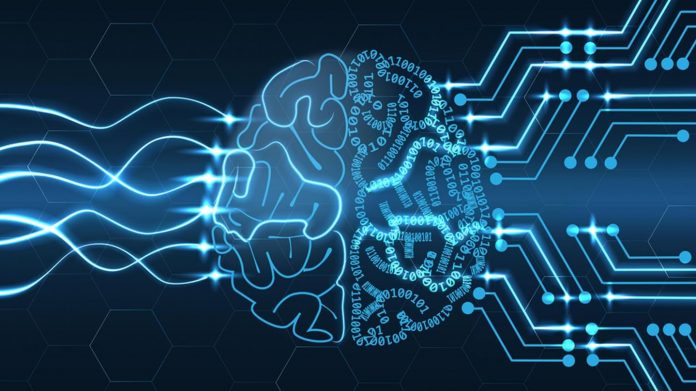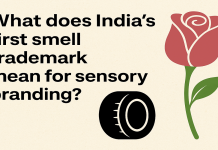This article has been written by Vikash Dhaka, pursuing the Diploma IPR, Media and Entertainment Laws from LawSikho.
Table of Contents
Introduction
This is 2021, where we are surrounded by technology; from smartphones to robots, technology has drastically evolved. Today, we have developed robots that can work better and faster than human beings. There is no doubt about the accuracy of the work done by technology. However, it is mankind who created technology. If we look at a few movies like The Terminator, released in 1984, which depicted how machines took over human beings’ work. Back then we assumed that such things were wild fantasies created by the director of the film but, today we can see how technology has equipped manual work. In this article, I will be discussing the impact of AI on IP laws and whether AI can be a threat to IP rights or not.
Background
AI is not something very unusual. We all are very familiar with AI. When machines work in a human-like manner, we call it AI. AI is a mixture of various disciplines such as science, mathematics, sociology, philosophy, etc. There are different opinions on the development of AI. Some say that AI will replace human beings and will become stronger than mankind while others applauded the development of AI and claimed that it will improve the quality of human life.
As we all know that the work created by our intellect or mind is protected by IP laws. However, when it comes to AI, ownership of IP rights over the work created by AI is a mystery today. Our IP laws protect the work created by human beings, not machines. So, the key question is how will IP laws deal with such creations. 
The conflict between AI and IPR
It is quite surprising that many big companies such as Microsoft and IBM have filed patent applications on AI and have been issued a patent over AI technologies. There is no doubt that there is a huge market for AI in the future. Many companies are investing billions in AI development. There are three categories of AI given by the World Intellectual Property Organisation (WIPO). These are perception systems, natural- language systems, and expert systems.
‘Perception Systems’ deal with the imitation of human senses by AI. ‘Natural-Language Systems’ deals with the meanings and grammatical errors of words used by the AI. At last, ‘Expert Systems’ is associated with the complex problems solved through the data present in the AI.
There are many people who believe that AI in the coming years can file and grant patent applications that can be a threat to the rationale behind IPR laws. Intellectual property laws are meant to protect the work created by the human intellect. IP laws deal with the work produced by the creative mind. The United States Copyright Office had rejected the application for protecting the work produced by a machine in 2016. They further said that copyright law exists to protect the work created by the creative mind. The European Union has prepared a draft regarding the possible dangers to mankind because of AI’s capacity of knowledge and intellect. The report stresses limiting AI’s capacity to prevent future harm.
There is no doubt that with each passing day, we are innovating in the field of AI. Many debates are going on regarding the applicability of IP laws on AI. Many copyright offices have declined the application to give protection to the work created by Machines. The other prominent question is that if AI created a new invention without the intervention of humans, will AI have a right to protect the same under patent law? Can AI be an owner of the invention created by it? What about the distribution of rights such as Ownership rights? Can AI enforce its rights? What about the damages if an AI infringes upon other’s rights? How will the damages be determined and who will pay the same? These questions have gained importance in the field of AI.
Today, if we look at different IP-related laws in the world, these laws are unable to answer such questions. For instance, as per US Patent Laws, the inventor is referred to as a living being who invents or discovers the invention/discovery. So, it is pretty clear that US patent laws don’t include inventions created by machines. There is a dire need felt by various countries to revisit their IP-related laws in order to include the work created by AI machines.
AI and copyright
Copyright empowers the author to protect his work. The work can be literary, musical, dramatic, artistic, etc. The rationale behind Copyright is to protect the work of the creative mind or intellect of the human being. With the advancement of technology, AI can create original work without any human interference. Today, it is a concern whether the work created by an AI is protected or not. If we look at the Indian Copyright law, it seems difficult to protect the work created by the AI. So, we can divide the work of AI into two categories. The very first will be the work created by the AI with human interference and the second will be the work created by the AI without human interference.
When an AI creates work with human input, we can say that there is a contribution of the human intellect in that work. So, the same can be protected under IP laws. But, when the work is created by the AI itself without any human intervention. The said work may or may not be eligible for copyright. The law is still vague under such circumstances but the experts believe that the person who created the AI in such a way that it can generate or create original work without any human inputs, can enjoy the protection under the copyright. The above statement seems logical but there are no laws as such in the present scenario.
AI and patent
It is certain that AI will create a ruckus in the patent industry. There are different perspectives raised by many Law firms and Jurists on whether the invention created by the AI should be granted a patent or not. If the patent is granted to the same, who will be the owner-AI or the software developer of the AI? There is one group that supports the idea that the invention created by AI should be granted a patent. They believe that it will help in developing more innovative machines in the future. While the other perspective is that it will hinder the technology development as there will be a monopoly of certain groups and an increase in research cost as well.
Another major challenge is to determine whether the invention created by AI is obvious or not. As technology improves or upgrades every now and then, there is great uncertainty and complexity in determining the obviousness. Apart from this, who will be liable if there is an infringement of patents by an AI. There is no room for doubt as AI is absolutely capable of infringing others’ patent rights. Will the AI be held liable or the software developer of the AI? Is there a way to determine the liability of AI?
AI and trademark
From the Google Home Speaker on Koffee with Karan to Siri on iPhone, we all use AI technology in one way or another. Today, we don’t ask friends what to wear as we have started to take fashion advice from AI. From smart refrigerators to smartwatches, we have fulfilled our day-to-day commitments with the help of AI. When we order or search for anything on any online shopping platform, we find the top brands in the list. However, there is a great possibility that AI can hamper the competition in the market because of its selective approach. Our search history plays an important role and accordingly, AI shows the result. It is very challenging to determine how AI can infringe trademarks. There is a dire need for new rules and regulations in the trademark with respect to AI.
Conclusion and suggestions
It is very clear that today’s IP laws are insufficient to deal with AI-related inventions and work. Every passing decade, we are entering into a different dimension in technology. Back in 2000, we were not aware of smartphones. But today, every second, an individual acquires an android phone, smartwatch, iPhone, etc. From fingerprint locks to face IDs, we all use AI in our smartphones. Even if we look at the super developed nations like the US, they also don’t have laws to deal with AI’s work. The European Union is also pondering on the laws related to AI.
All IP laws talk about the works or inventions created by human beings. Copyright specifically talks about the work that is created by the creative mind of humans and is eligible for protection. Similarly, the patent laws talk about the inventions made by human beings and the same goes for trademark laws as well.
The author strongly believes that it is the demand of recent times to modify the IP laws with respect to AI. AI should not be the owner of its work or invention, rather the software developer should be the owner and be held liable for the acts committed by the AI.
References
- https://www.mondaq.com/india/patent/892134/artificial-intelligence-in-the-world-of-ip
- https://www.ipwatchdog.com/2017/07/27/role-artificial-intelligence-intellectual-property/id=86085/
- https://www.lawgazette.co.uk/practice-points/the-future-relationship-between-ai-and-ip/5105631.article
- https://www.wipo.int/about-ip/en/artificial_intelligence/policy.html
- https://link.springer.com/article/10.1007/s40319-020-00908-z
Students of LawSikho courses regularly produce writing assignments and work on practical exercises as a part of their coursework and develop themselves in real-life practical skills.
LawSikho has created a telegram group for exchanging legal knowledge, referrals, and various opportunities. You can click on this link and join:
 Serato DJ Crack 2025Serato DJ PRO Crack
Serato DJ Crack 2025Serato DJ PRO Crack










 Allow notifications
Allow notifications


